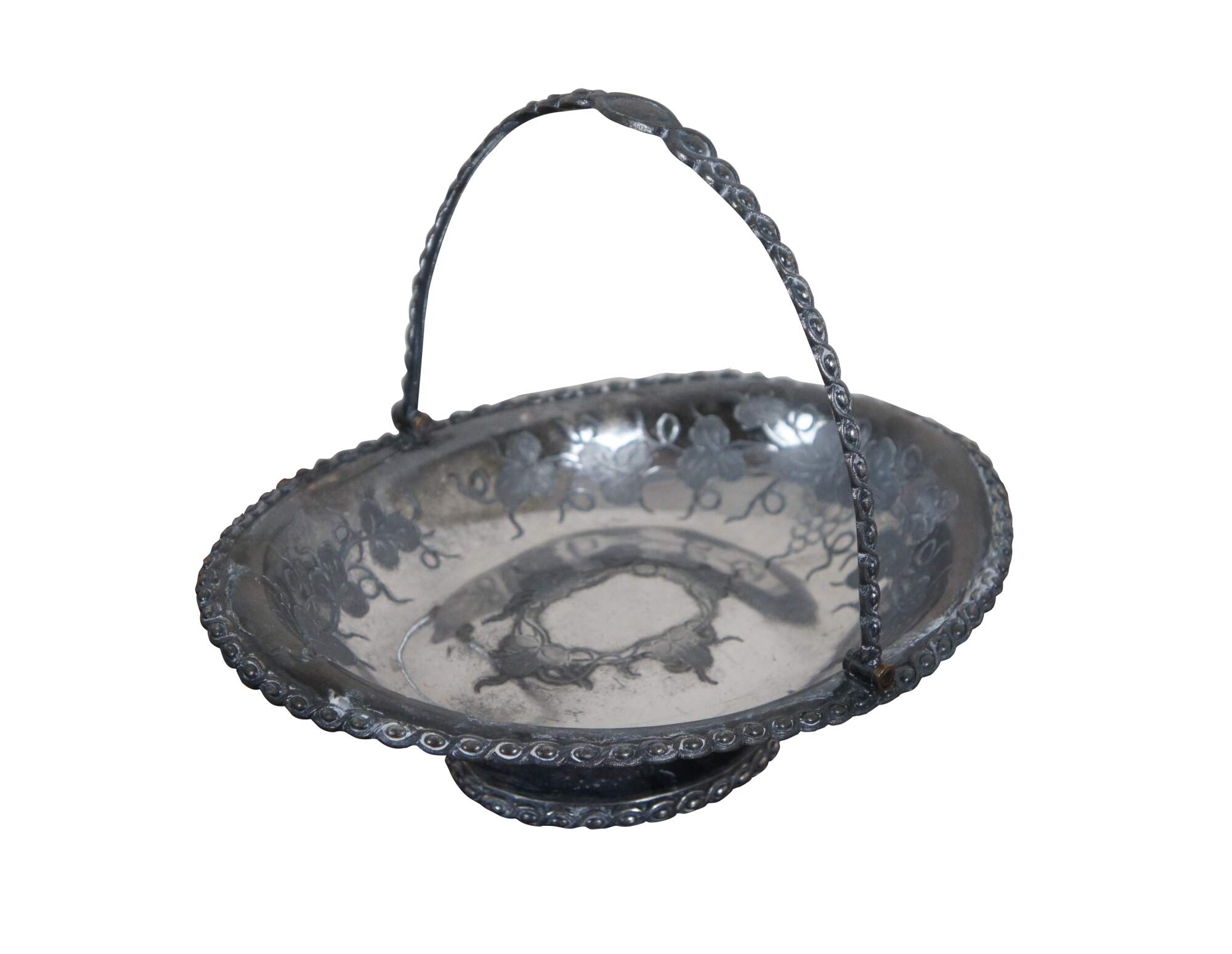
Shipping:
Free Shipping Included
Delivery:
Estimated 2-15 Business Days
Payments:
Credit Card, Check, Cash, PayPal, Apple Pay, Venmo
Returns:
30 Days 100% Money Back Guarantee, Buyer Pays Return Shipping
Description
Circa mid 1800's (1850s-1860s) silver plate bride's harvest or fruit basket by Roswell Gleason & Sons. Repousse oval shape with footed base, beaded knotwork trim, and rotating bail handle. Center etched with three leaf clovers / shamrocks. Top of handle engraved with initials TVMEH.
"Roswell Gleason was born on April 6, 1799, in Putney, Vermont. Gleason moved to Dorchester in 1818 and was apprenticed to tinsmith William Wilcox in Dorchester's Four Corners neighborhood. In 1822 he took over the shop after Wilcox's death. The business produced tin and pewter goods for household and ecclesiastical use, such as plates, bowls, tankards, communion sets, candlesticks and oil lamps. By the 1830s, he was also producing Britannia ware. In 1837, the Massachusetts Charitable Mechanic Association held its first exhibition, a trade fair intended to promote and improve the state of manufacturing in the country. Gleason submitted several award-winning entries. By 1850, Gleason's sons, Roswell Jr. (1826–1866) and Edward (1829–1863), had joined the business, now known as Roswell Gleason & Sons. Edward traveled to England to study the new technology of electroplating, first patented there in 1840. Gleason's affordable wares quickly found a market among middle-class and upper-class households eager to display their wealth and taste in their homes. Gleason expanded his factory as new production methods were introduced. He imported electroplating equipment from England and commissioned the world's largest white metal rolling machine, designed by Professor Daniel Treadwell of Harvard College. A former apprentice himself, Gleason continued the practice; many of his employees lived at the factory complex, which was, in effect, a company town with its own shops, housing and meals provided for workers. He also brought over skilled artisans from Europe. After a boiler explosion in 1870 damaged the factory, Gleason, whose sons had died a few years prior, decided to close the business in 1871 and retire." (Source: Wikipedia)
Condition
Good Overall - Tarnish; slight denting at edge
Dimensions
11.5" x 9" x 3.5" / Handle Height - 6" (Width x Depth x Height)